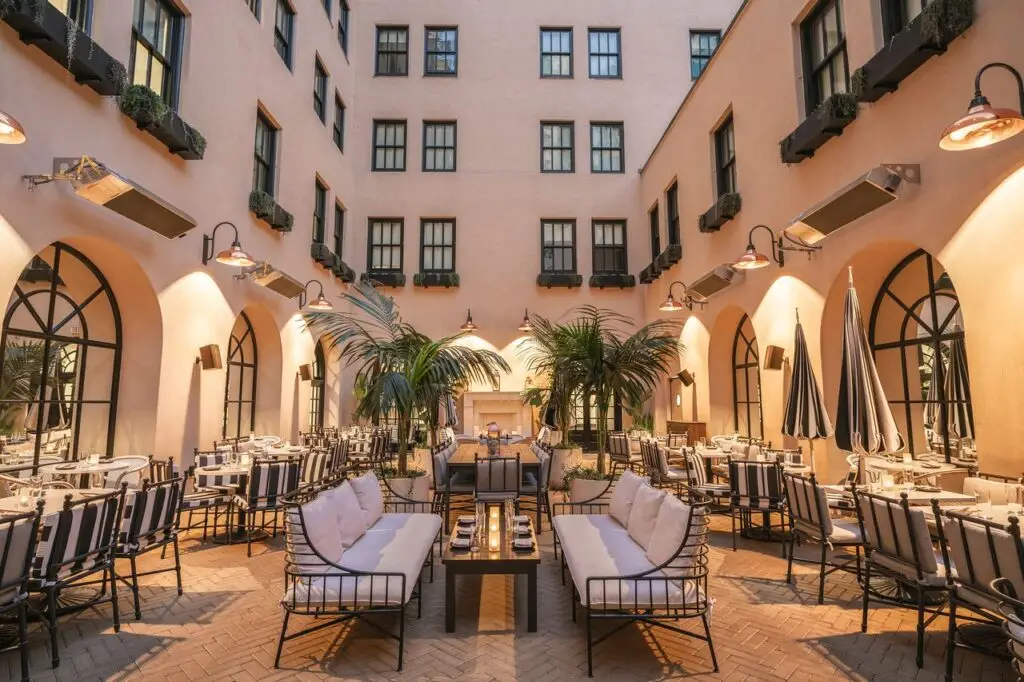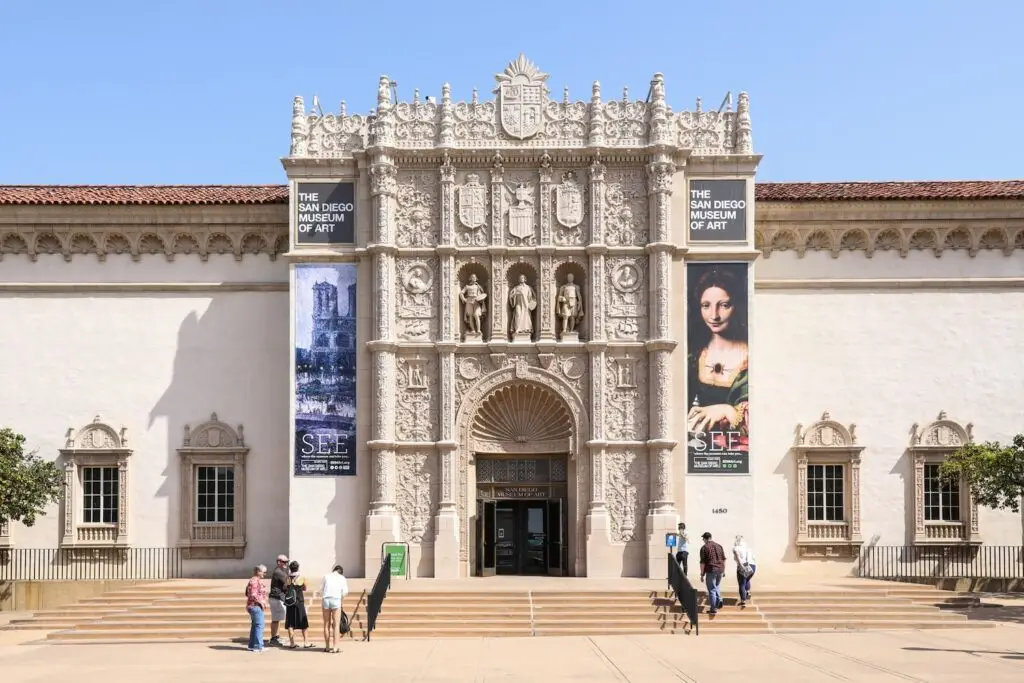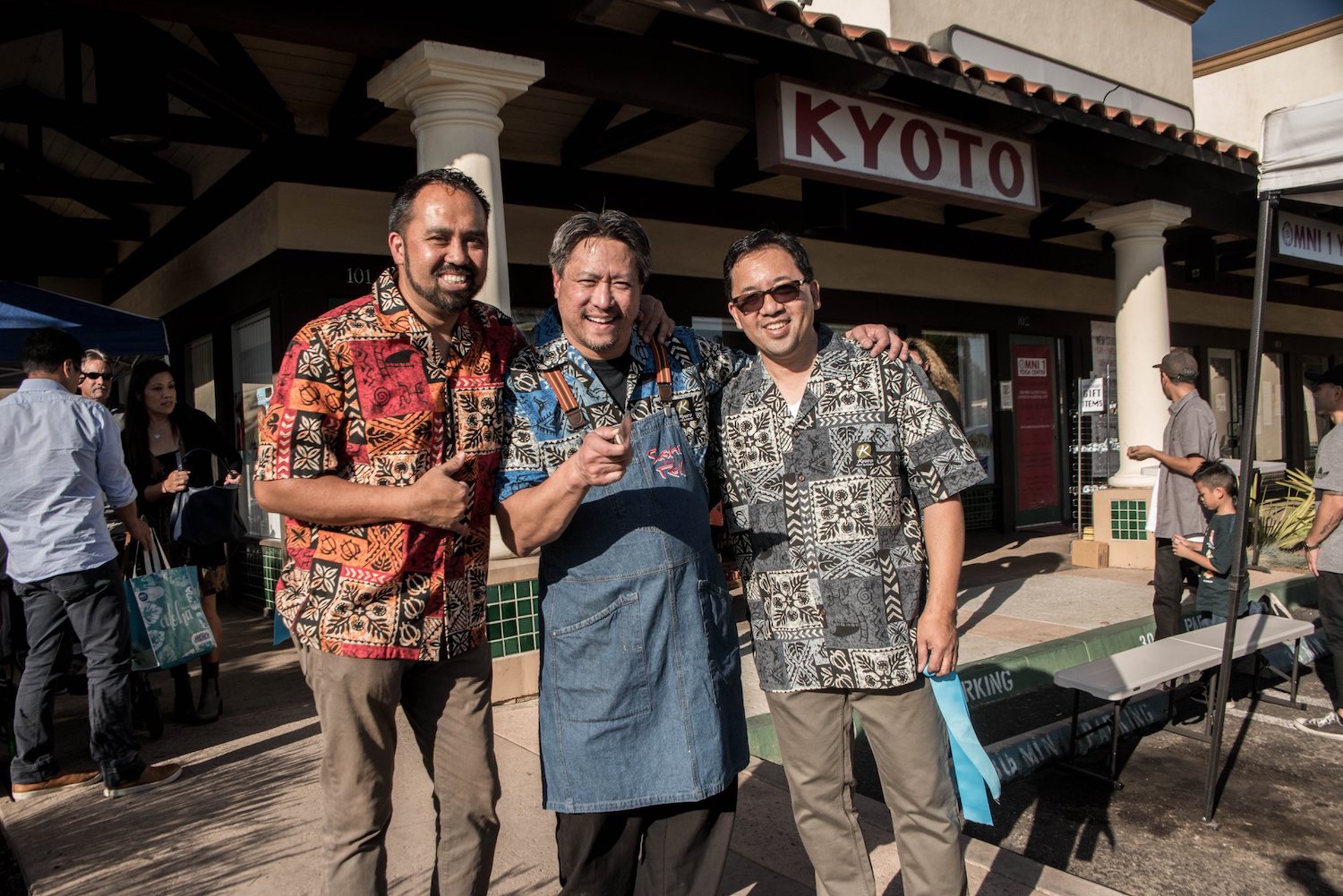At 6 p.m. on Wednesdays, Kyoto Gift and Food, a grocery store and sushi restaurant in National City, closes up shop, though its doors remain unlocked. This is when Kyoto Gift’s test kitchen experience—an ad hoc local take on Food Network’s Chopped—makes its weekly debut.
The space transforms into a set, where chefs cook and you eat what they make—if you can snag a seat, that is. Others can watch online in real time from the shop’s YouTube channel, which livestreams the evening. Co-owner Rodney Regala says they do this so they can teach customers how to use the ingredients sold in the store without spending hours editing videos.
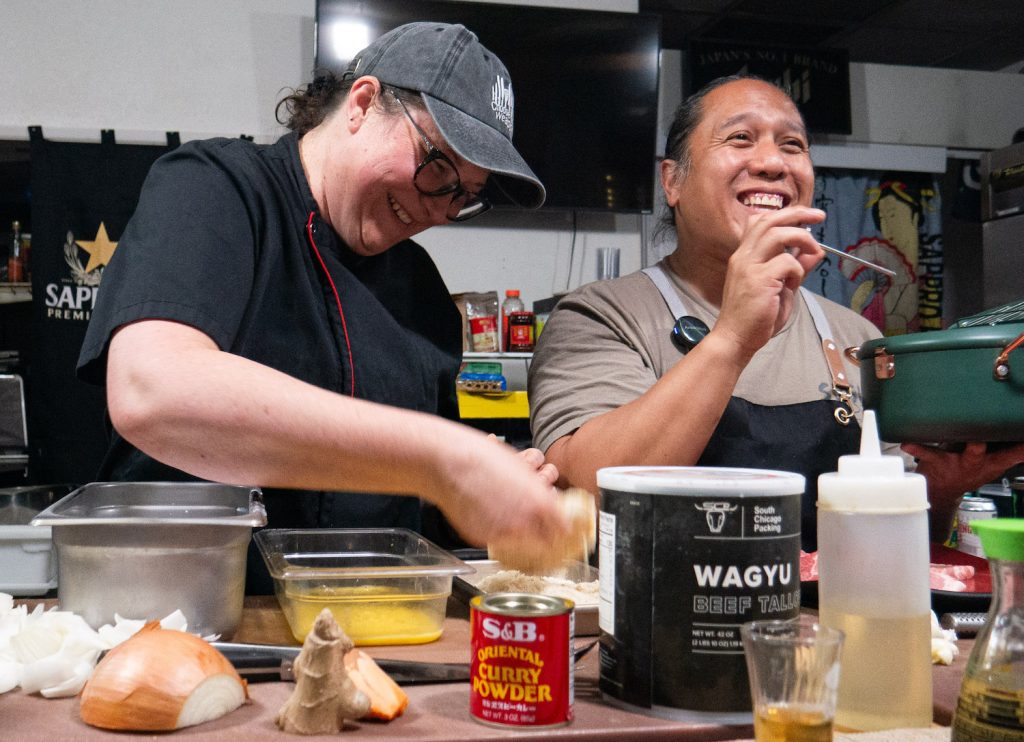
Interactive, unglossy, and off-the-cuff, this time-saving hack might be exactly what makes the experience at the test kitchen so engaging.
On some nights, chef Wilmer Braulio will ask a guest to run to the front and surprise him with a product to incorporate into the meal. Or he’ll make you chuckle and gasp as he slices cabbage into centimeter-thick pieces without looking.
Each week, the dishes and tutorials change. A recent Wednesday evening focused on Japanese curry. The event started off at 7 p.m. with a few technical difficulties, but once the lights turned on and the cameras got sorted out, Braulio and Melanie Shortridge, a guest chef who is in culinary school, stepped up to the makeshift set behind the sushi bar.
In a format similar to Food Network’s Guy’s Grocery Games, Braulio and Shortridge sourced products from the store to simultaneously cook their own renditions of Japanese tonkatsu curry. (Though you’ll find fewer time limits in the test kitchen than on TV—we didn’t sample the chefs’ dishes til 8:45 p.m.)
Fourteen people crowded around the bar, elbows bumping. “Kanpai,” or cheers, rang out more than five times over the course of the evening as viewers shouted for a toast in the comments and the cameraman echoed the call aloud. Each sip seemed to ramp up the roars of laughter and commentary.
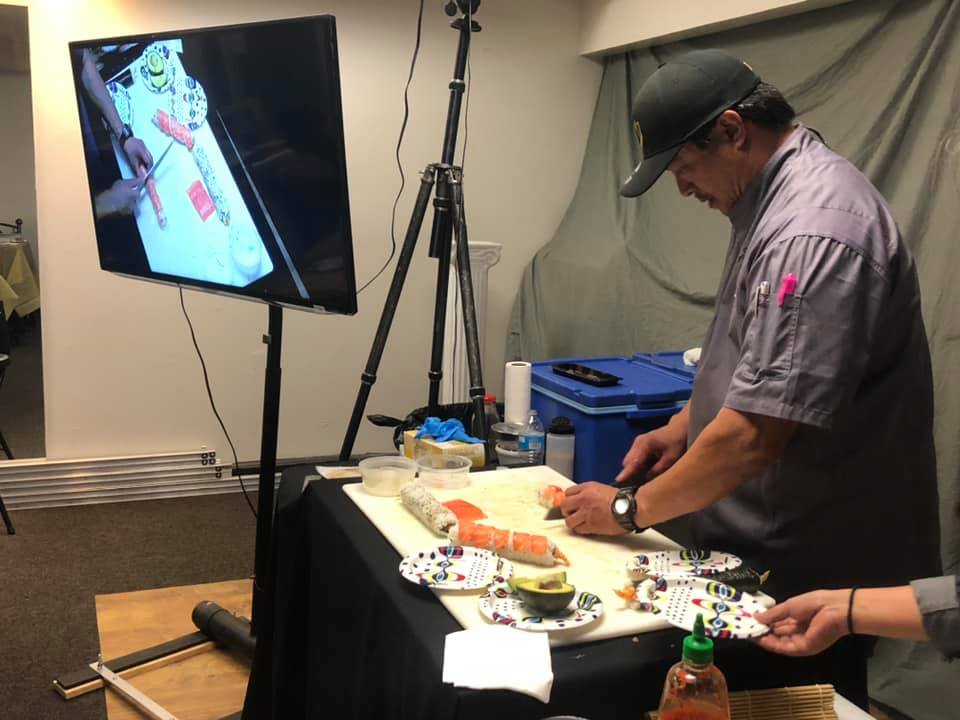
The room was warm under the set lights. Oil sizzled and the chefs talked through their process. As Braulio and Shortridge prepared their curries, a regular customer passed out Filipino champorado, a dish she’d made and brought from home.
While the Wednesday night menu changes every week, there are some aspects that stay the same—like the fact that you’ll typically eat something packed with a spicy punch. Braulio added capsaicin powder to second helpings of his curry. My nasal passages cleared, and I had to dab my tear ducts to keep streams from leaking out.
You might eat something you have never tried before—I slurped bluefin tuna marrow straight out of the bone at another test kitchen night—but you’ll start to recognize the faces of regulars who flock here each week. While a tense competitive spirit often seems to permeate cooking shows like Chopped, the mood in the test kitchen is one of joyful camaraderie. The chefs share techniques. Friends laugh with—and at—one another.
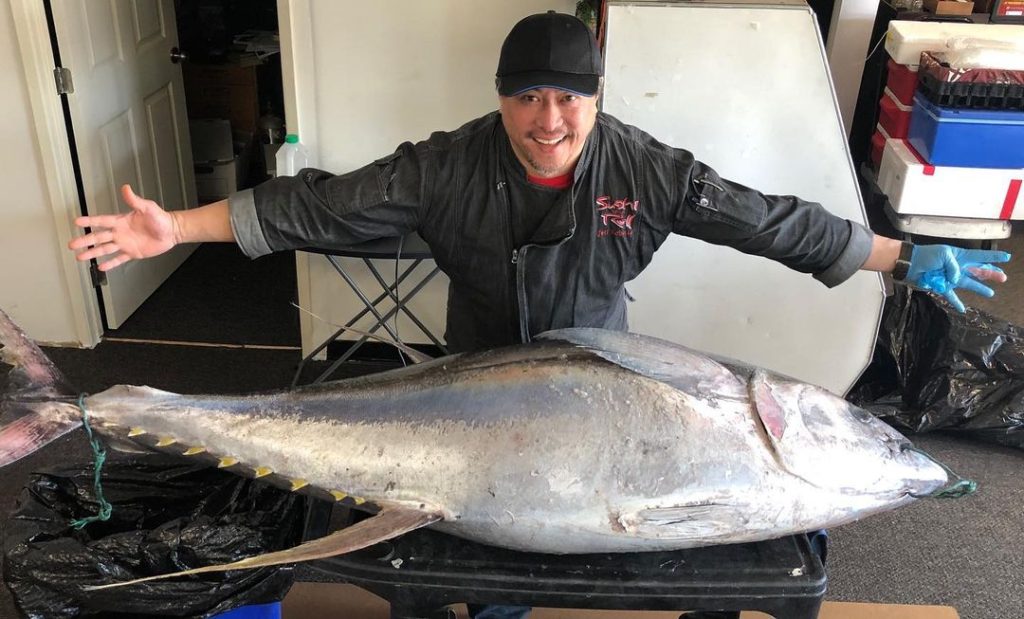
That same energy fills Kyoto Gift and Food even outside of test kitchen evenings. Step in for dinner, and Braulio either knows your order, if you’re a regular, or immediately jumps in to help you find the right roll to try.
I sat down at the sushi bar another night while Braulio handled the dinner rush. “Hey, Daniel, the usual?” he asked as a customer walked up. At Daniel’s nod, Braulio set to work, whipping out a couple of rolls in less than five minutes.
The salmon he uses comes to the market whole and fresh each week; Braulio butchers it himself.
At the front, the store’s shelves are lined with Asian ingredients and snacks: shrimp chips, furikake seasoning, Spam, Mogu Mogu drinks. And you’ll find more than food. One section holds a T-shirt reading “San Diego Pare,” a play on the San Diego Padres. (Pare means friend or buddy in the Filipino language.) Another shirt says “Chamorro;” another, “Brown AF.”
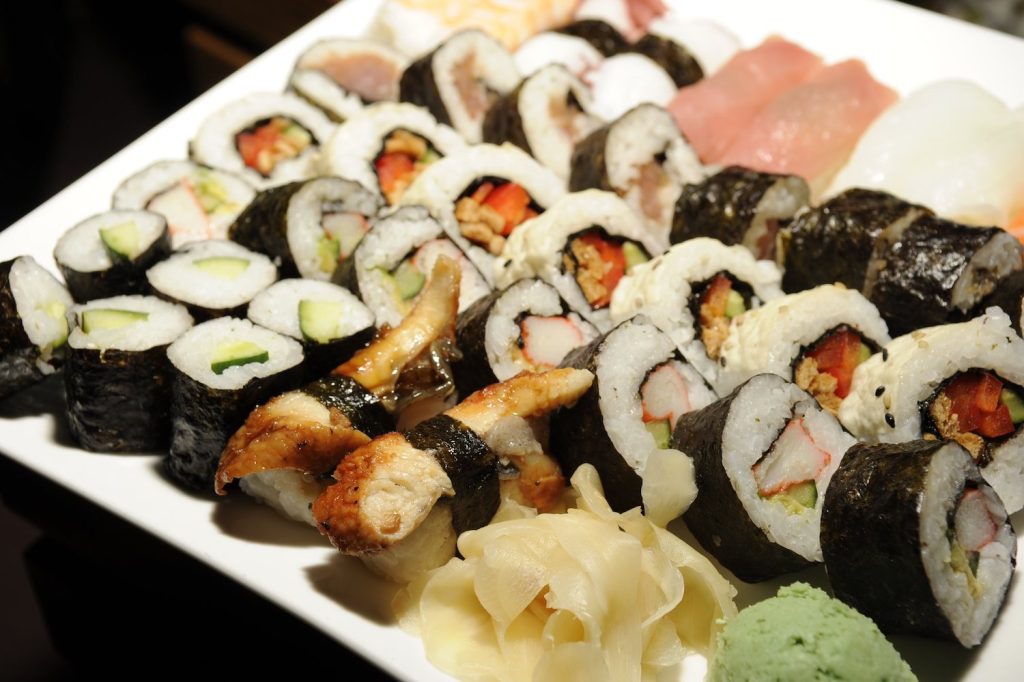
According to Regala, the shop was founded over 65 years ago. It started out selling exclusively Japanese products.
When the original owners wanted to retire, they offered their family friends Grace and Masanobu Yajima the opportunity to continue its operation. They ran it for 30 years before asking Jeff Roberto, Regala’s co-owner, to take over in 2018. Roberto had spent his career in sushi catering. He asked Regala and Regala’s brother Reggie to join him in this new (but old) venture. The three of them are Filipino-American, not Japanese.
Regala said the older clients who had been shopping here for years weren’t keen on them right away.
“They were testing us because we’re these Filipino guys running the show,” Regala says. “I asked them, ‘How do you pronounce this? How do you use this in the dish you prepare? How do you greet?’ They were like our moms or grandmas and took us under their wings after we proved ourselves.”
PARTNER CONTENT
Regala says they’ve kept the store going partly to celebrate and honor the area’s Asian roots. “It’s an institution for the community,” Regala said. “Four generations of families … have come here.”
And, in the test kitchen, you can feel it. There’s a swagger and banter among the chefs as they chop, stir, and roll. There’s laughter from both the chefs and guests. People find community here, both because and regardless of their cultural background. By the time you leave, you’ll be part of the club, too.

